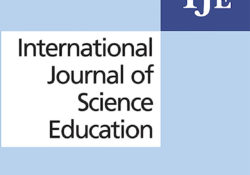tandfonline.com – Meeting Cognitive Demands of Lesson Planning: Introducing the CODE-PLAN Model to Describe and Analyze Teachers’ Planning Competence
tandfonline.com har udgivet en rapport under søgningen “Teacher Education Mathematics”: Abstract Abstract This article proposes a new research approach to teachers’ lesson planning. While numerous guidelines have been dominating lesson planning as an object of teacher education, we utilize teacher cognition and expertise research to view lesson planning from a different perspective: We argue that lesson planning typically demands specific cognitive skills that teachers must master to create high quality instructional practice. The so-called CODE-PLAN model (cognitive demands of lesson planning) forms the general theoretical framework for our conceptualization of six demands (content transformation, task creation, adaptation to student learning dispositions, clarity of learning objectives, unit contextualization, and phasing) to empirically describe and analyze teachers’ planning competence. We investigate how these demands are met through content analysis of 337 plans… Continue Reading

